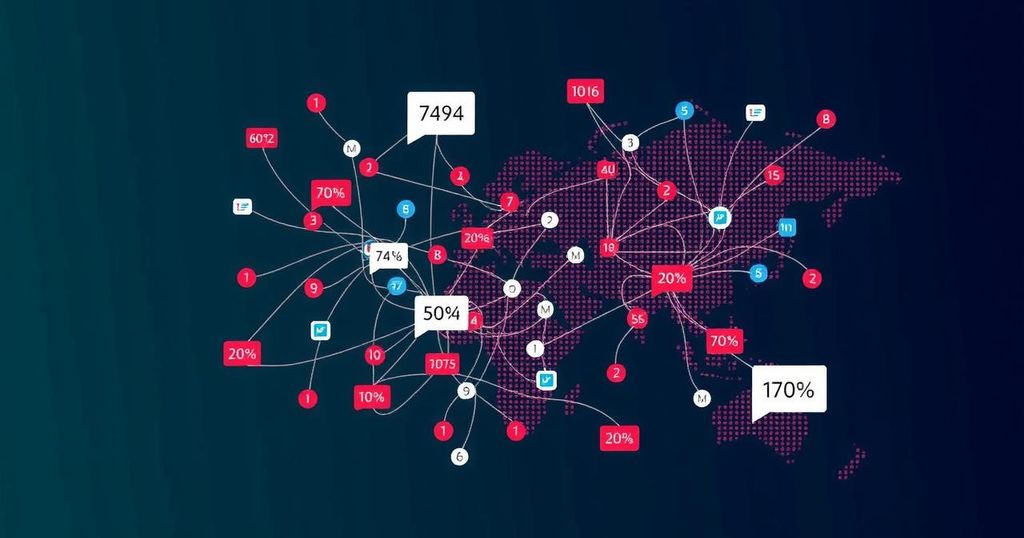Meta Reports Minimal AI Impact on Election-Related Misinformation

Meta reported that generative AI content accounted for less than 1% of election-related misinformation across its apps, suggesting limited impact during significant elections worldwide. The company emphasized its proactive measures against deepfakes and covert disinformation campaigns, successfully dismantling numerous such operations while focusing on account behaviors rather than content. Meta also noted the prevalence of election misinformation on rival platforms, asserting its commitment to ongoing policy review.
At the conclusion of 2023, Meta published findings indicating that concerns regarding the misuse of generative artificial intelligence (AI) to interfere with elections may not have materialized as anticipated. The company reported that less than 1% of election-related misinformation across its platforms—Facebook, Instagram, and Threads—was attributable to AI-generated content. These assertions were based on analyses of several significant elections taking place in various nations, including the United States, India, and Brazil. Meta highlighted that existing measures effectively mitigated the risks associated with generative AI during critical electoral periods.
The firm noted that it had received a substantial volume of requests for AI-generated imagery related to prominent political figures, including President-elect Trump and President Biden, ultimately rejecting around 590,000 requests in an effort to combat potential deepfakes. Furthermore, coordinated campaigns attempting to leverage AI for disinformation made minimal advances, as Meta’s approach emphasizes behavioral profiling over content creation techniques, allowing it to effectively dismantle these operations irrespective of the technology employed.
Moreover, Meta revealed that it successfully neutralized approximately 20 covert influence campaigns worldwide that were aimed at counteracting foreign interference. A significant proportion of these efforts were characterized by inauthentic audience engagement, with perpetrators employing fake likes and followers to feign credibility. Meta also noted that misleading videos concerning the U.S. elections were predominantly disseminated via competing platforms such as X and Telegram, distancing itself from the responsibility of managing these narratives. In light of the learnings from the year, Meta expressed its commitment to ongoing review and potential revisions of its policies.
The backdrop of this discussion stems from initial anxieties surrounding the capability of generative AI to affect the integrity of electoral processes globally. As concerns mounted earlier in the year about possible distortions to democratic practices through propaganda and misinformation, it became crucial for platforms like Meta to evaluate and address these challenges. Meta sought to reassure stakeholders by demonstrating that their existing frameworks sufficiently counteract the threats posed by AI technologies, particularly during critical timeframes like election cycles.
In summary, Meta’s analysis suggests that while some cases of AI-generated content were verified, their overall prevalence remained negligible in the context of election-related misinformation. Through proactive measures, including stringent regulations against deepfake creation and the suppression of covert propaganda campaigns, the company maintained its stance against AI-fueled risks. Moving forward, Meta will continue to assess and refine its policies in anticipation of future electoral challenges.
Original Source: techcrunch.com







